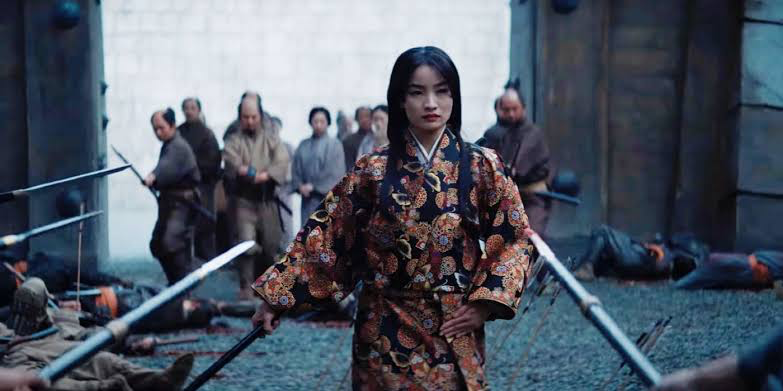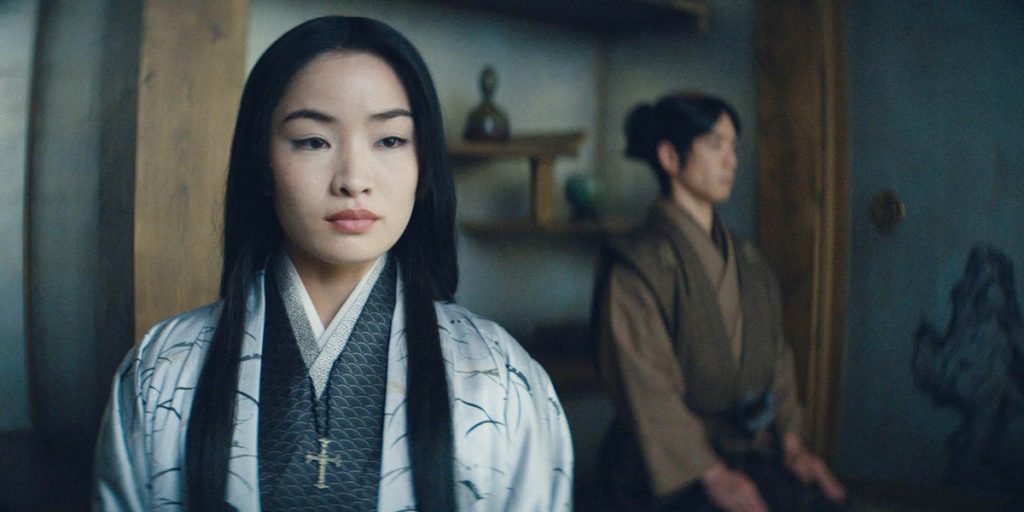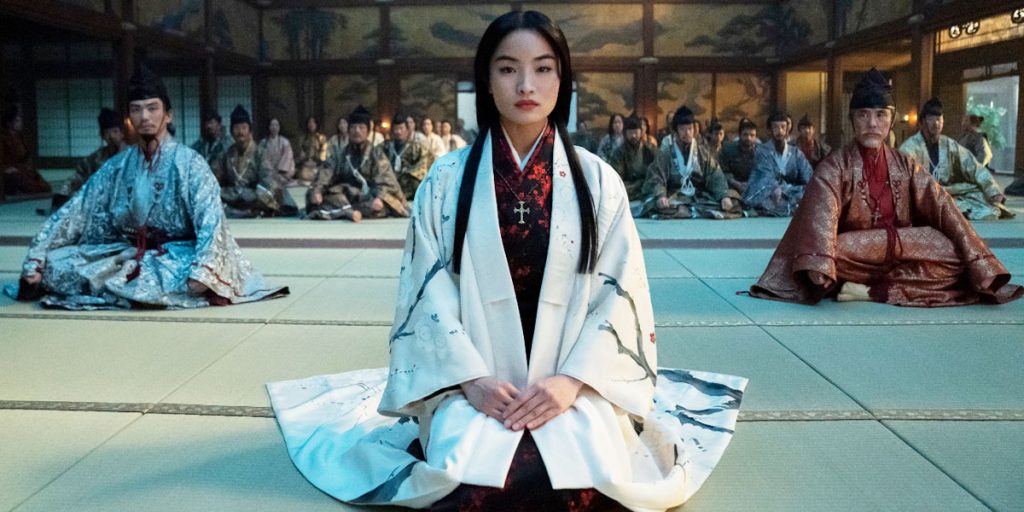Before Anna Sawai captivated audiences with her performance in Shōgun, the Emmy-winning breakout star had a career in a completely different realm. Sawai first made a name for herself as the lead vocalist of the J-Pop girl group FAKY in 2013, a role she embraced shortly after her sophomore year in college.

However, despite embracing the spotlight from a young age, Anna Sawai’s transition from the vibrant world of J-Pop to the dramatic landscapes of Hollywood was neither straightforward nor easy. But eventually, Sawai’s experiences in the music industry, marked by rigorous training and personal challenges, profoundly shaped her journey and equipped her for her role in Shōgun.
Anna Sawai’s J-Pop Journey Helped Her Role in Shōgun
Anna Sawai might have found her breakout role in Shōgun, and have won an Emmy for her performance, but her career didn’t begin with the 2024 show. Prior to her Hollywood days, Sawai was already honing her skills as the lead vocalist of the J-Pop girl group FAKY. Joining the group in 2013, shortly after her sophomore year in college, Sawai’s career began with high-energy performances and rigorous training.
However, to her surprise, Anna Sawai reflected on how her background in dance and choreography, honed from years of ballet during her J-pop days, provided a strong foundation for her acting career. Speaking with The Cut, the actress revealed how her J-pop journey laid a unique foundation for her future in acting. Particularly addressing a big action sequence on Shōgun, Sawai noted that her intense J-pop training came in handy.
I don’t know if it prepared me for acting, but it definitely is helpful. I was dancing ballet since I was 5, so learning choreography is something that I’m really used to doing. I’ll catch it very quickly and I’ll forget it even quicker. For the last big action sequence on Shōgun, remember just doing two rehearsals and then on the day I was totally fine.
So in that sense, it helped the action side of acting, but it’s so different when you’re performing in a band than when you’re on set and getting into the emotion of a character and embodying them.

Despite the benefits, Anna Sawai’s J-Pop journey was not without its struggles. On Late Night with Seth Meyers, the actress thus revealed how her decision to leave FAKY was driven by her strong desire to pursue acting. However, while elaborating on this turning point and the challenges she faced, Sawai still managed to look on the bright side and bring out a silver lining.
Prior to even joining the group, my team knew that I wanted to act. And when I did join, I found out that it wasn’t really going to be possible. I felt like I wasn’t in control of my own career and knew that I had to make the choice to leave if I wanted to pursue acting.
It was also a tough time, but because I couldn’t freely audition for things, now when things are hard, I’m able to really put in the work. And without really good work ethic, I think a project like Shōgun, a role like Mariko would not have been possible for me to play. So I’m grateful for the experience.

Anna Sawai acknowledged the contrast between performing as part of a band and embodying a character on set. But despite the differences, the actress noted that her J-Pop experience undoubtedly contributed to her adaptability and precision in action scenes.
The Emotional Toll and Struggles of Anna Sawai’s J-Pop Days
Meanwhile, during an interview with W Magazine, Anna Sawai spoke more freely of how her experience with FAKY, though formative, was fraught with difficulties. This time, instead of speaking fondly of her band and looking at the silver lining, Sawai noted that the discipline of the J-Pop industry, where she was taught to listen more than speak, left her grappling with a loss of self-confidence.

I would not want my kids — if I have kids in the future — to do that… For those 10 years, I was taught to listen more than say anything. That made me lose confidence in myself. I’m having to unlearn a lot of the things that I was taught, which is kind of unfortunate and hard to do when you’re in your 30s. Maybe if I hadn’t had that experience, I would have had a shortcut to being comfortable with the way I am and unapologetically myself.
Opening up about the emotional toll and professional struggles she faced during her decade with FAKY, Anna Sawai revealed how the demanding nature of her J-Pop career came with a heavy price. Sawai admitted that the prolonged period of enforced silence and strict control over her career left her grappling with self-doubt. Now, although the actress claimed to be working on herself and on unlearning those ingrained habits, she recognized the unfortunate impact on her self-esteem.
Today, as Anna Sawai stands on the summit of Hollywood stardom with her Emmy win for her iconic role in Shōgun, she reflects on her past with both gratitude and a critical eye. Her candid reflections highlight the dual nature of her J-Pop experience—the valuable training ground and the extensive period of significant personal challenge.
Shōgun is currently available to watch on Hulu.

